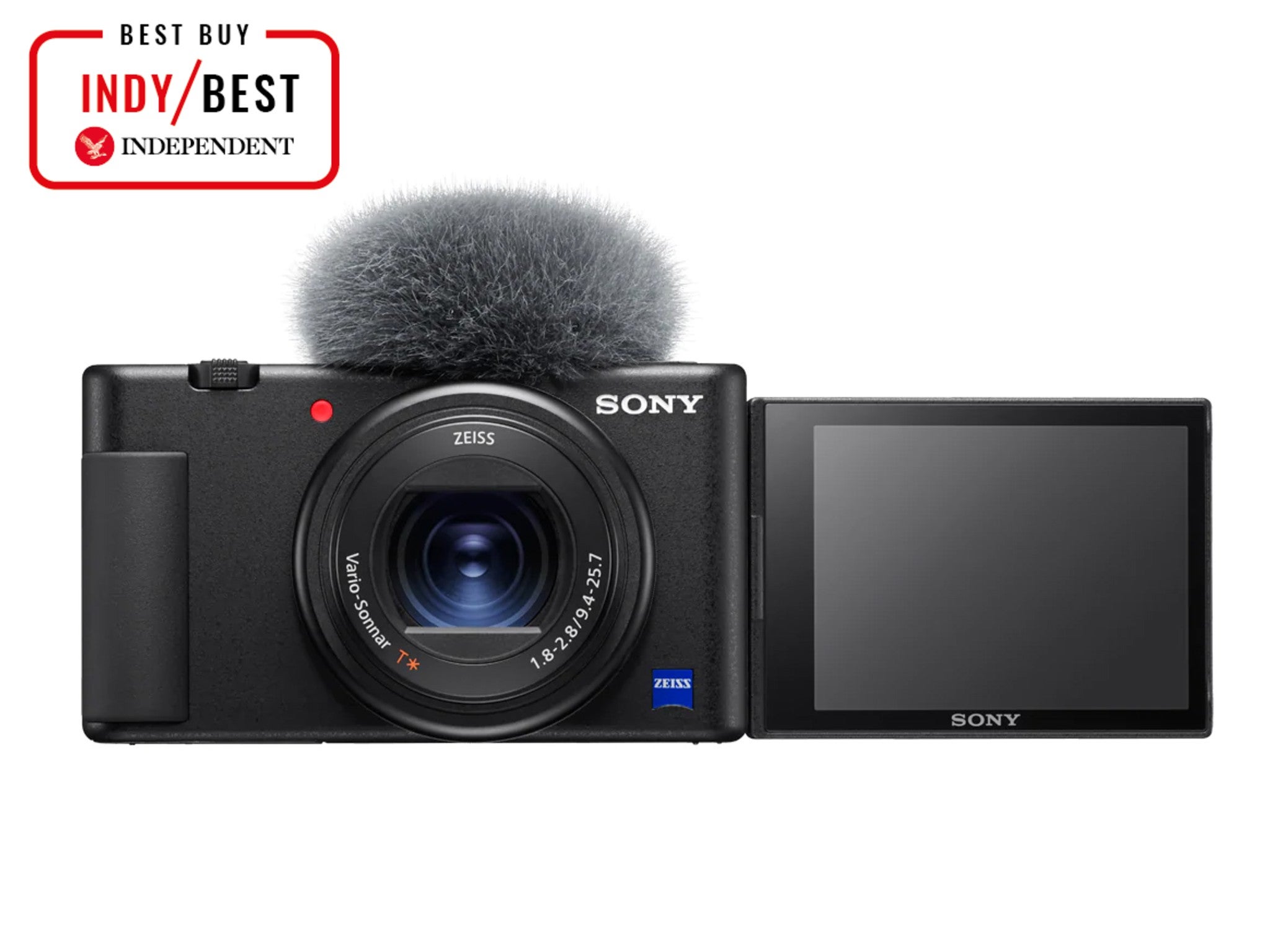
The Independent's journalism is supported by our readers. When you purchase through links on our site, we may earn commission. Why trust us?
8 best vlogging cameras that’ll have you shooting to internet fame
Whether you’re an Instagram influencer or a rising Twitch sensation, we can’t shutter up about these

As vlogging has evolved from a hobbyist pursuit to a leading (and lucrative) form of media, so too have the production values. The best vlogging cameras are versatile, compact, and able to shoot in a variety of conditions - from studio cameras for product reviews, to image-stabilising outdoor cameras for walking and talking.
Smartphones have improved to the point that many entry-level video makers can produce brilliant content with the camera they’ve got in their pocket. But vloggers who want to set themselves apart with better picture quality or by using different lenses in interesting ways have traditionally turned to high-end SLRs (single-lens reflex cameras).
Lately, camera manufacturers have caught up to this new customer base, adapting existing full-frame and compact mirrorless cameras to include features and capabilities that content creators require.
So which camera is best? That depends on what features you need. No one device is going to turn you into an overnight YouTube sensation, so beginners should focus on content rather than picture quality. A smartphone is good enough for anyone just starting out, but a budget vlogging camera makes a great entry point for those who are ready to level up their videos.
When we talk about full-frame cameras, we’re referring to the size of the sensor inside the body of the camera. While all sorts of clever image-processing algorithms can spruce up a photo after it’s been taken, the sensor is a physically limiting factor when it comes to true image quality. The larger a sensor is, the more photons it can capture in one go. A full-frame sensor is bigger than a postage stamp, which is why your smartphone doesn’t have one.
Read more:
With the exception of the Logitech StreamCam, all of these cameras shoot in 4K resolution. To achieve this, some cameras crop in on the image, creating a tighter framing that can cut off the top of your head when filming at arm’s length. How much of a problem this is depends on the lens you’re using, and it can usually be fixed by placing the camera on a selfie stick to get some distance.
How we tested
We’ve rounded up eight of the best vlogging cameras around, taking into consideration the above aspects, as well as price, size, weight, video-recording quality and extra features. The cameras were tested indoors and (with the obvious exception of the webcam) taken for a lovely walk along a nature trail.
The best vlogging cameras for 2022 are:
- Best overall – Sony ZV-1: £599, Amazon.co.uk
- Best for outdoor filming – Fujifilm X-S10: £999, Jessops.com
- Best for YouTubers – Canon EOS M50 mark II: £699, Jessops.com
- Best full-frame camera – Panasonic DC-S5: £1,659, Amazon.co.uk
- Best all-rounder – Panasonic lumix G100: £679, Johnlewis.com
- Best compact camera – Canon powershot G7 X mark III: £699, Johnlewis.com
- Best action camera – GoPro hero 9 Black: £329.98, Gopro.com
- Best desktop camera – Logitech StreamCam: £99.99, Currys.co.uk
Sony ZV-1

Best: Overall
- Camera type: Compact
- Sensor type: CMOS
- Resolution: 20.1MP
- Connectivity: Wifi, Bluetooth
- Size: 60mm x 105.4mm x 43.5mm
- Weight: 294g
- Connection: USB 2.0
Designed with vloggers in mind, the Sony ZV-1 offers the features and functionality of a way more expensive mirrorless camera, in a compact package that’s as convenient to carry around as a smartphone. On the video side of things, the ZV-1 excels: recording in 4K at up to 30fps (frames per second) without cropping, in 1080p at 120fps, and in lower resolutions for slow-motion filming at up to 960fps. Autofocus is whip fast – there’s even an option to autofocus on the product you’re talking about, rather than your own face.
We found that the directional three-capsule microphone array picked up our voice clearly when walking and talking outdoors, especially when used with the included fuzzy wind muff. The touchscreen flips out and around, so you can be certain you’re in frame, and the entire thing is light and comfortable enough to hold at arm’s length for extended shots and multiple takes. The Sony ZV-1 is the best compact camera for vloggers.
Fujifilm X-S10
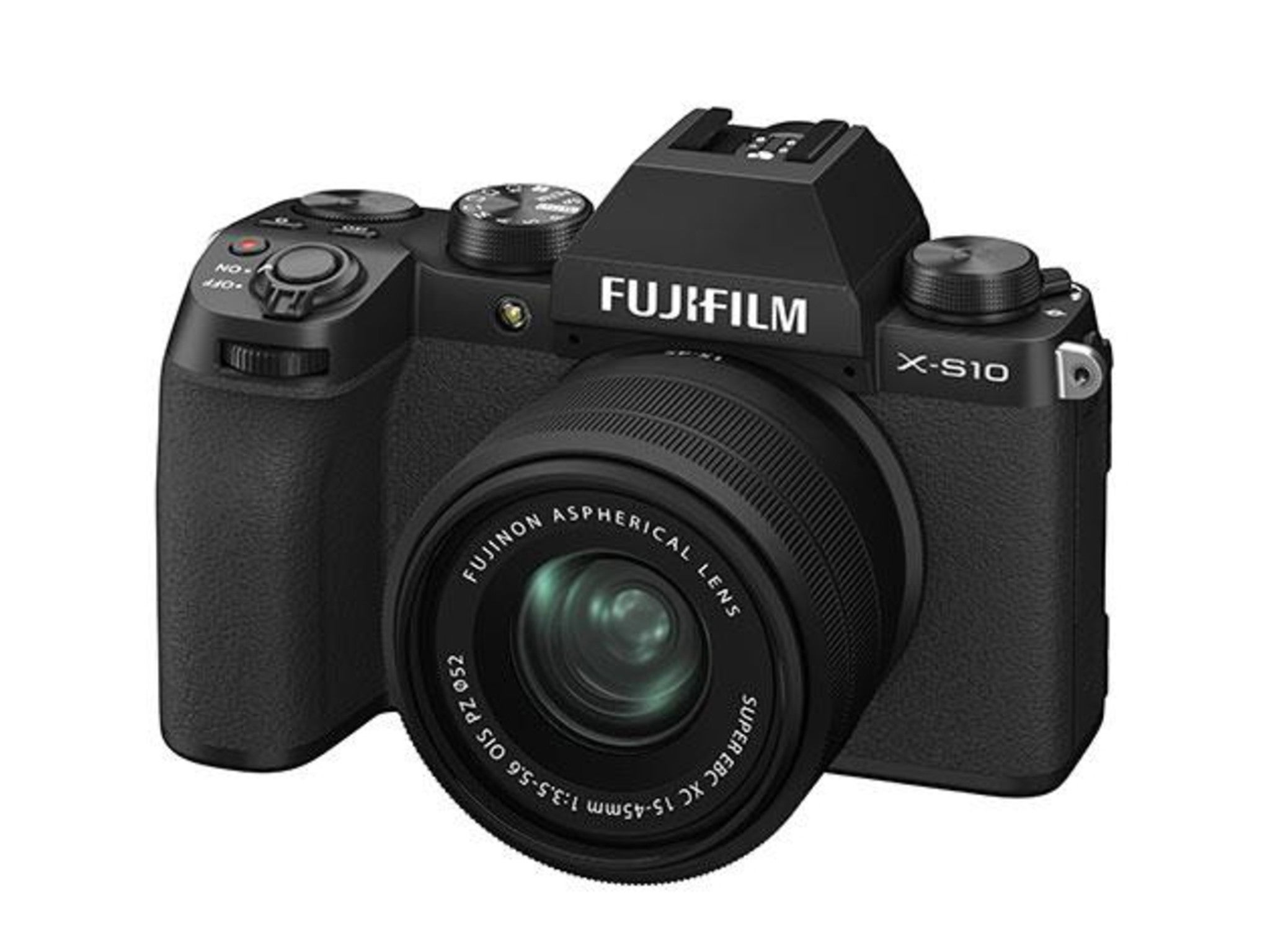
Best: For outdoor filming
- Camera type: Mirrorless
- Sensor type: APS-C CMOS 4
- Resolution: 26.1MP
- Connectivity: Wifi, Bluetooth
- Size: 126mm × 85.1mm × 65.4mm
- Weight: 465g
- Connection: USB Type-C, HDMI micro connector
Fujifilm arrived a little late to the vlogging party, trailing behind rivals Sony and Panasonic, but it’s used the extra time well — the X-S10 gets everything right. There’s a chunkier grip for more control while holding the camera at arm’s length, improved video recording options, built-in image stabilisation to counteract hand jitters, the option to plug in an external microphone, and a fully articulated touchscreen display – all features vital for creating professional-looking, well-produced video.
The X-S10 shoots video at 4K at 30fps, and at 1080p at 240fps, which gives you loads of flexibility for slowing down footage in the editing suite. We were most impressed by the image stabilisation, which smoothed out jerky movements even on a walk along a bumpy nature trail. This is the ideal camera for outdoor vloggers.
Canon EOS M50 mark II
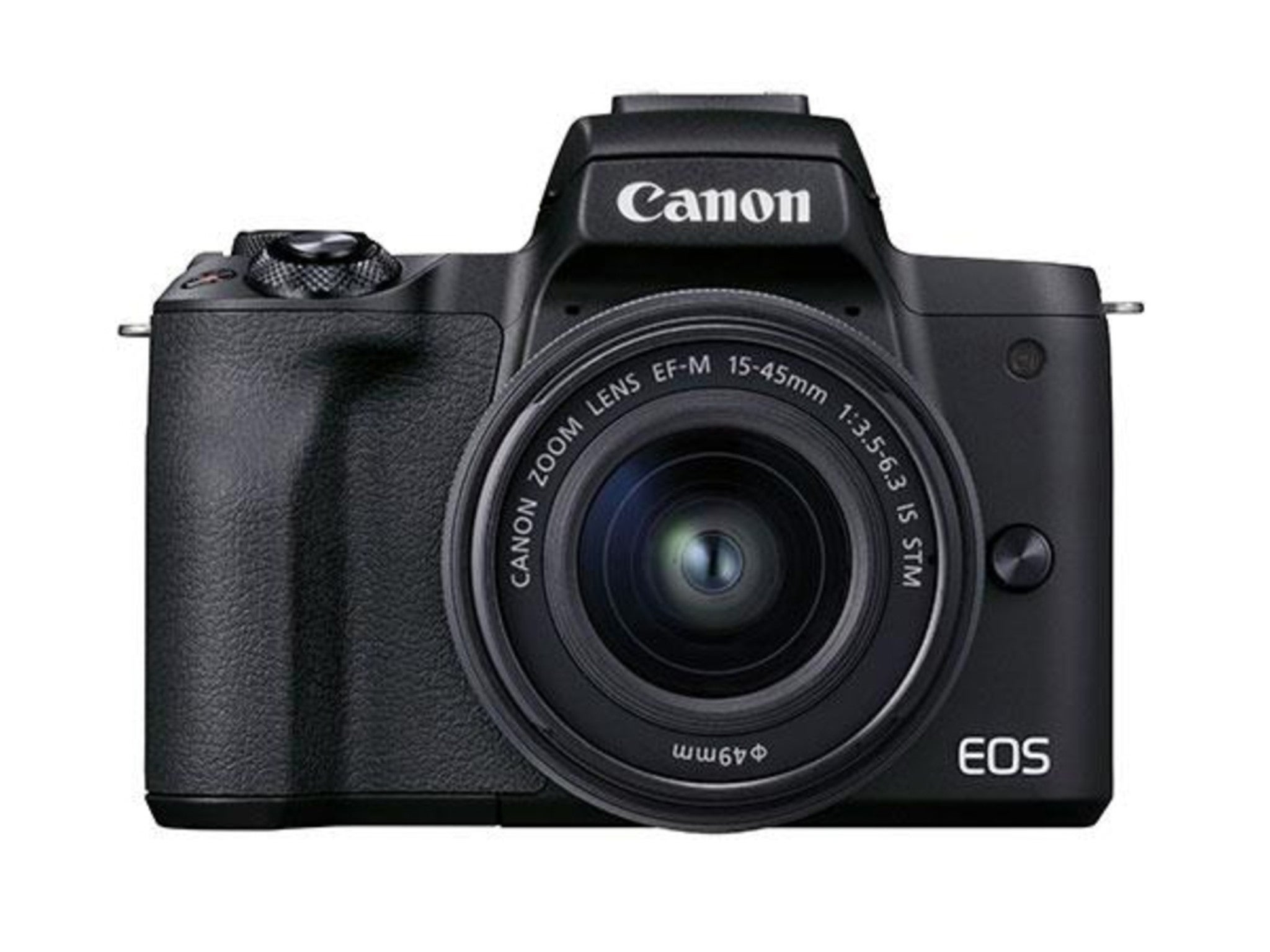
Best: For YouTubers
- Camera type: Mirrorless
- Sensor type: APS-C
- Resolution: 24.1MP
- Connectivity: Wifi, Bluetooth
- Size: 116.3mm x 88.1mm x 58.7mm
- Weight: 387g
- Connection: USB 2.0, HDMI
The successor to one of the most popular cameras for vloggers, the Canon EOS M50 mark II is a mid-range mirrorless camera that introduces a few key features to make video creation easier and more streamlined. It’s got some of the trendier features of the powershot above, namely YouTube live streaming and vertical filming, but the key improvement here for on-camera creators is the redesigned autofocus.
When filming, the EOS M50 mark II will lock focus on your eyes and track your head movements, so that even if you turn sideways to the camera and your face isn’t entirely visible, the autofocus won’t start hunting for another pair of eyes. That’s useful depending on the kind of videos you create, but for many vloggers these incremental updates might not be enough to warrant upgrading from the older EOS M50 (£539.99, Argos.co.uk).
Panasonic DC-S5
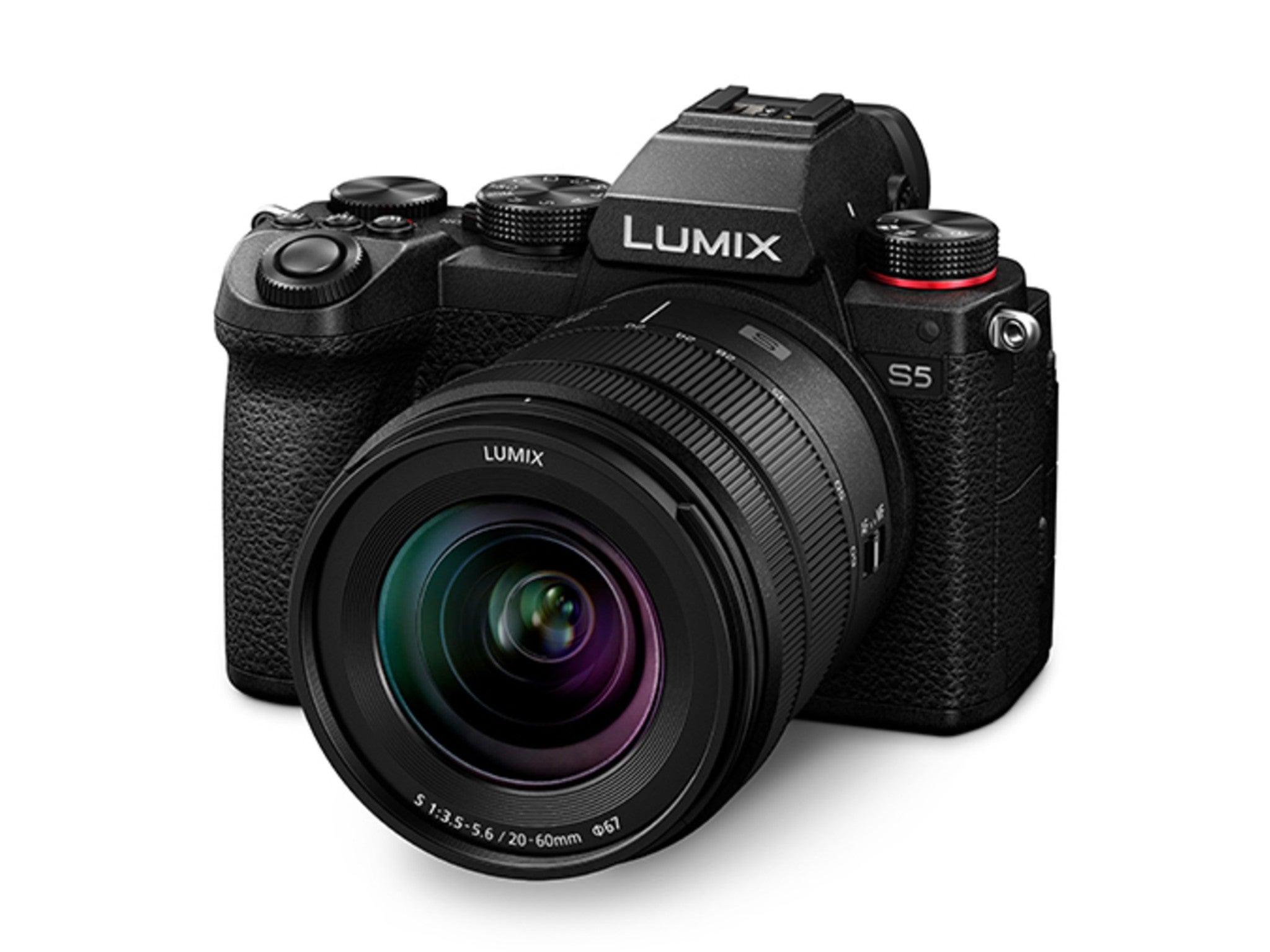
Best: Full-frame camera
- Camera type: Mirrorless
- Sensor type: CMOS
- Resolution: 24.2MP
- Connectivity: Wifi, Bluetooth
- Size: 132.6mm x 97.1mm x 81.9mm
- Weight: 714g
- Connection: USB 3.1 gen1 Type-C , HDMI
The DC-S5 is Panasonic’s full-frame offering to videographers looking to make the step up from a compact camera. It’s a 24MP full-frame mirrorless camera that produces consistently glorious looking pictures. It comes equipped with Panasonic’s latest autofocus system, video-centric features such as time lapse, and five-axis in-body image stabilisation. It shoots in 4K at a silky smooth 60fps without cropping, and intelligent subject-recognition can track and focus on faces and moving targets.
All that, and the camera body is kept relatively tiny for this category. The ergonomic S5 is very comfortable to hold, and despite having less room available on the chassis, it manages to retain convenient on-body dials and buttons for the most commonly used controls and settings. At this price, there’s no better full-frame camera for video creators.
Panasonic lumix G100
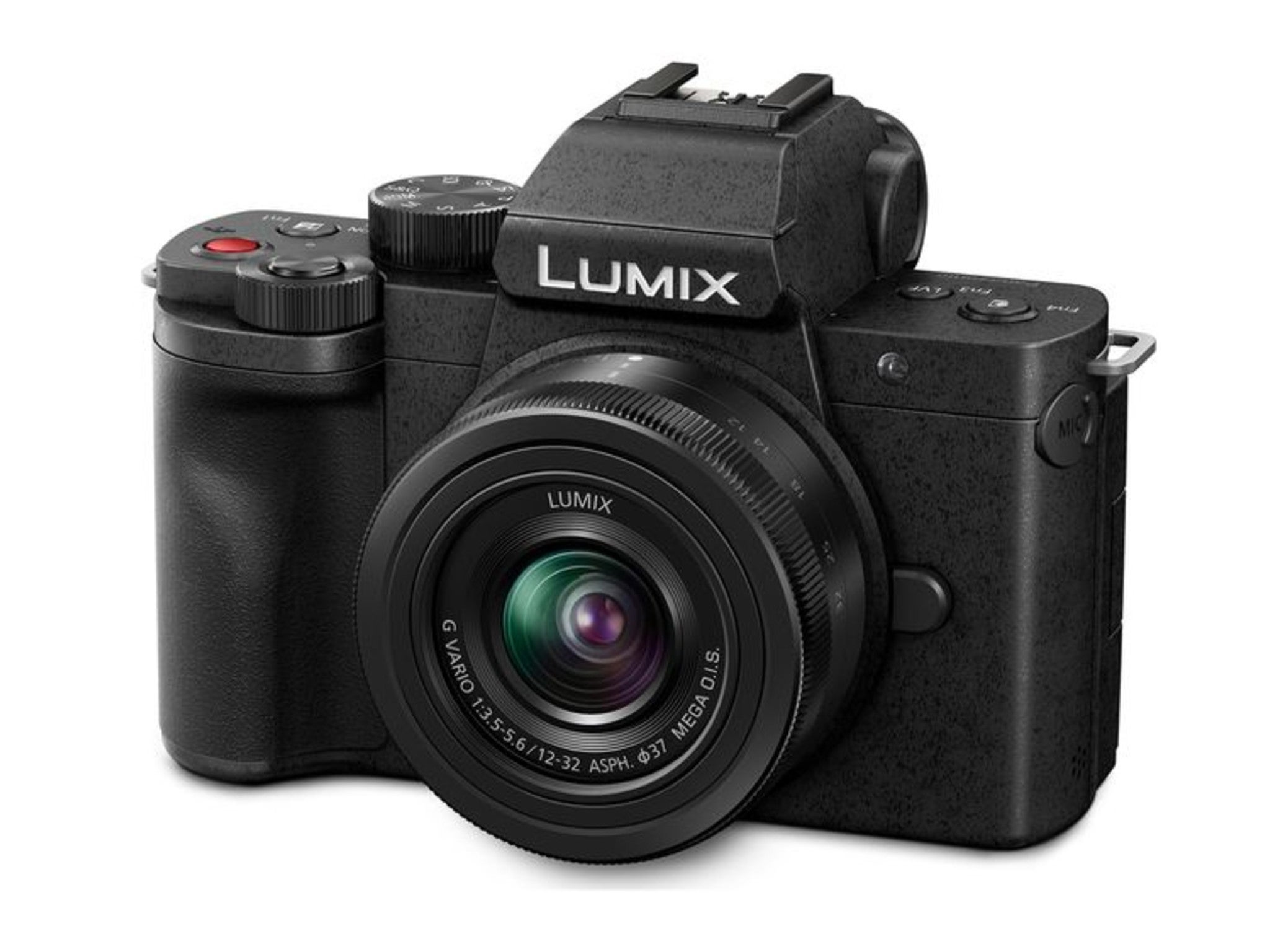
Best: All-rounder
- Camera type: Compact
- Sensor type: MOS
- Resolution: 20.3MP
- Connectivity: Wifi, Bluetooth
- Size: 116m x 83mm x 54mm
- Weight: 412g
- Connection: USB 2.0, micro HDMI
The lumix G100 is a versatile and full-featured vlogging camera with a good range of video options, recording in 4K at 30fps, and in 1080p at 60fps. Like the Sony ZV-1 (£599, Amazon.co.uk), it’s a compact and lightweight unit, but has interchangeable lenses and a slightly larger sensor, opening up an array of creative filming and still-photography opportunities not offered by a fixed-lens camera. It also has a very effective built-in microphone, with the option to slide an external piece of kit into the hotshoe.
At 4K the G100 crops in on the frame, so shots are tighter when recording at the highest definition. This isn’t a problem if the camera is perched at the end of a selfie stick – and unlike the ZV-1 it can be mitigated entirely with a wider angle lens – but might not suit vloggers who prefer to take up less of the frame. An all-round excellent camera for social media creators.
Canon powershot G7 X mark III
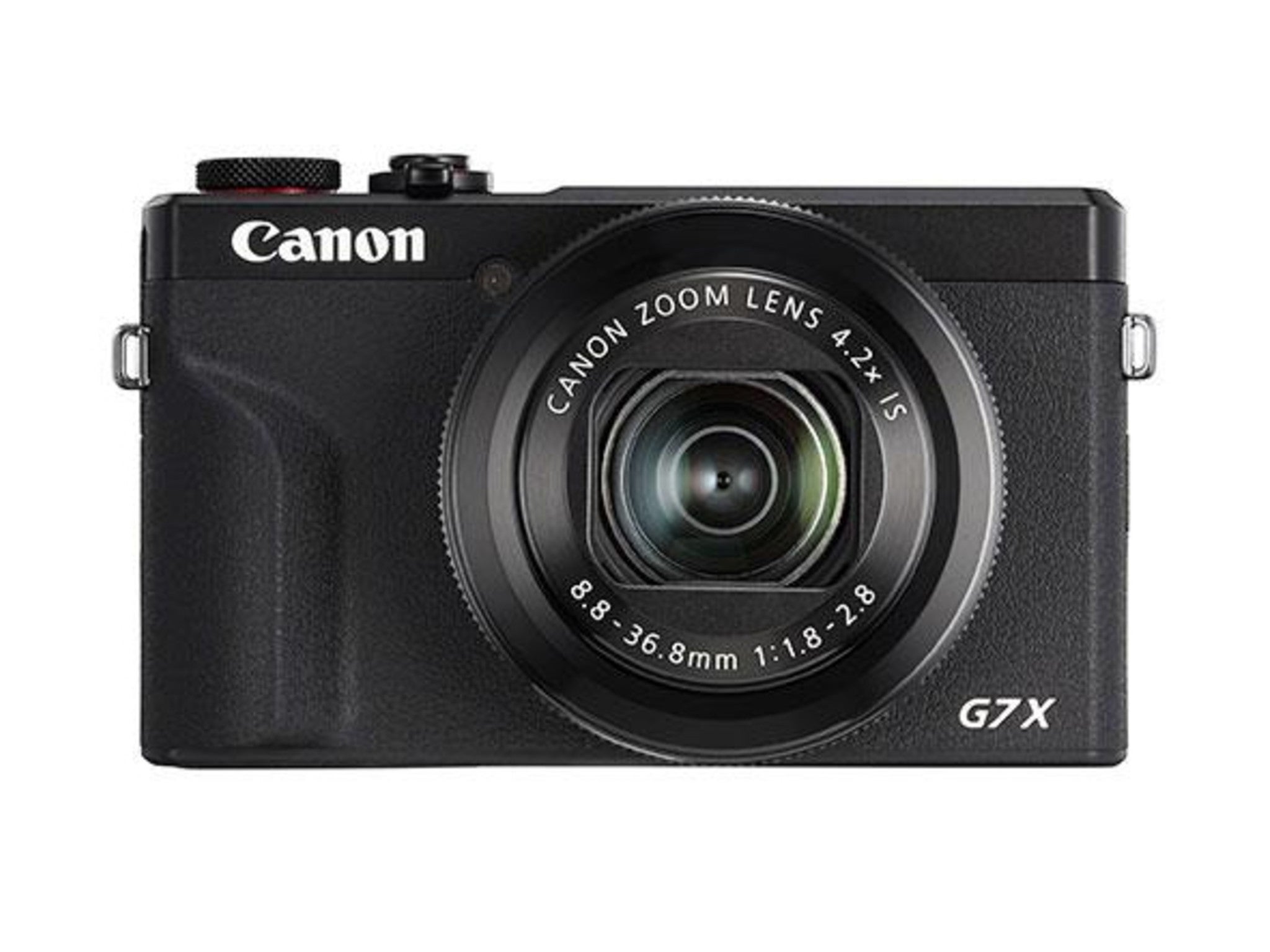
Best: Compact camera
- Camera type: Compact
- Sensor type: CMOS
- Resolution: 20.1MP
- Connectivity: Wifi, Bluetooth
- Size: 106mm x 61mm x 41mm
- Weight: 304g
- Connection: USB 3.1 Type C
The pocket-sized G7 X mark III is a strong contender in the compact category, taking the G7 X series and pumping it full of video capabilities that vloggers will appreciate. The G7 X mark III records in 4K at 30fps without cropping, and in 1080p at a superfast 120fps, enabling the option to slow down footage in post production if the project needs it. It also has an input for your external microphone, as well as a flip-it-out and turn-it-around 3in touchscreen for self-framing.
All cameras can film vertically, but the G7 X mark III uses a gyroscope to tell when it’s being held this way, and outputs a properly rotated video file for quick uploads to portrait-minded social media platforms such as Instagram and TikTok. This is a very simple feature that could save some video creators countless hours. You can even live-stream wirelessly from the camera to YouTube, though the setup for this is fiddly. Regardless, it’s a nice-to-have feature on an otherwise outstanding compact shooter.
GoPro hero 9 black
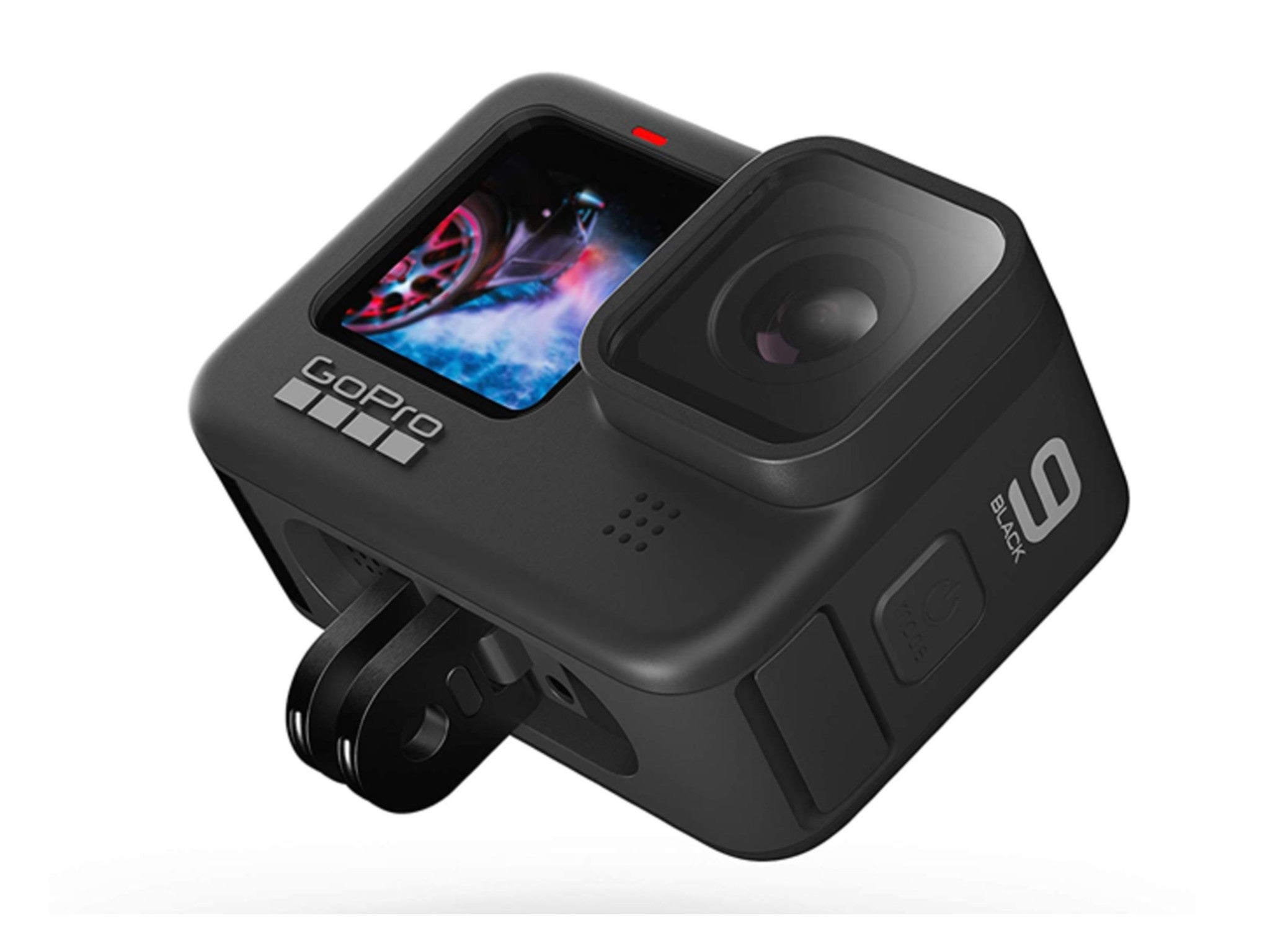
Best: Action camera
- Camera type: Action
- Sensor type: CMOS
- Resolution: 20MP
- Connectivity: Wifi, Bluetooth
- Size: 34mm x 51mm x 62mm
- Weight: 480g
- Connection: USB-C Cable
The ruggedised and near-indestructible GoPro made a name for itself as an action camera, but it shouldn’t be overlooked as a tool for adventurous vloggers filming in places they wouldn’t want to risk carrying thousands of pounds’ worth of gear. The latest iteration is the GoPro hero 9 black, and introduces features that video creators were crying out for, namely a modding slot for slotting in a directional microphone, a light, and a front display for easier framing.
You don’t have to be at the business end of a bungee cord to find the GoPro’s features useful. The 5K recording at 30fps delivers impeccable detail and flexibility in editing, while the best-in-class image stabilisation is dreamily smooth. And while the hero 9 black might not have all the features to be the go-to camera for vloggers – especially housebound ones – but it’s a highly capable secondary, and the only camera you should jump out of a plane with.
Logitech StreamCam
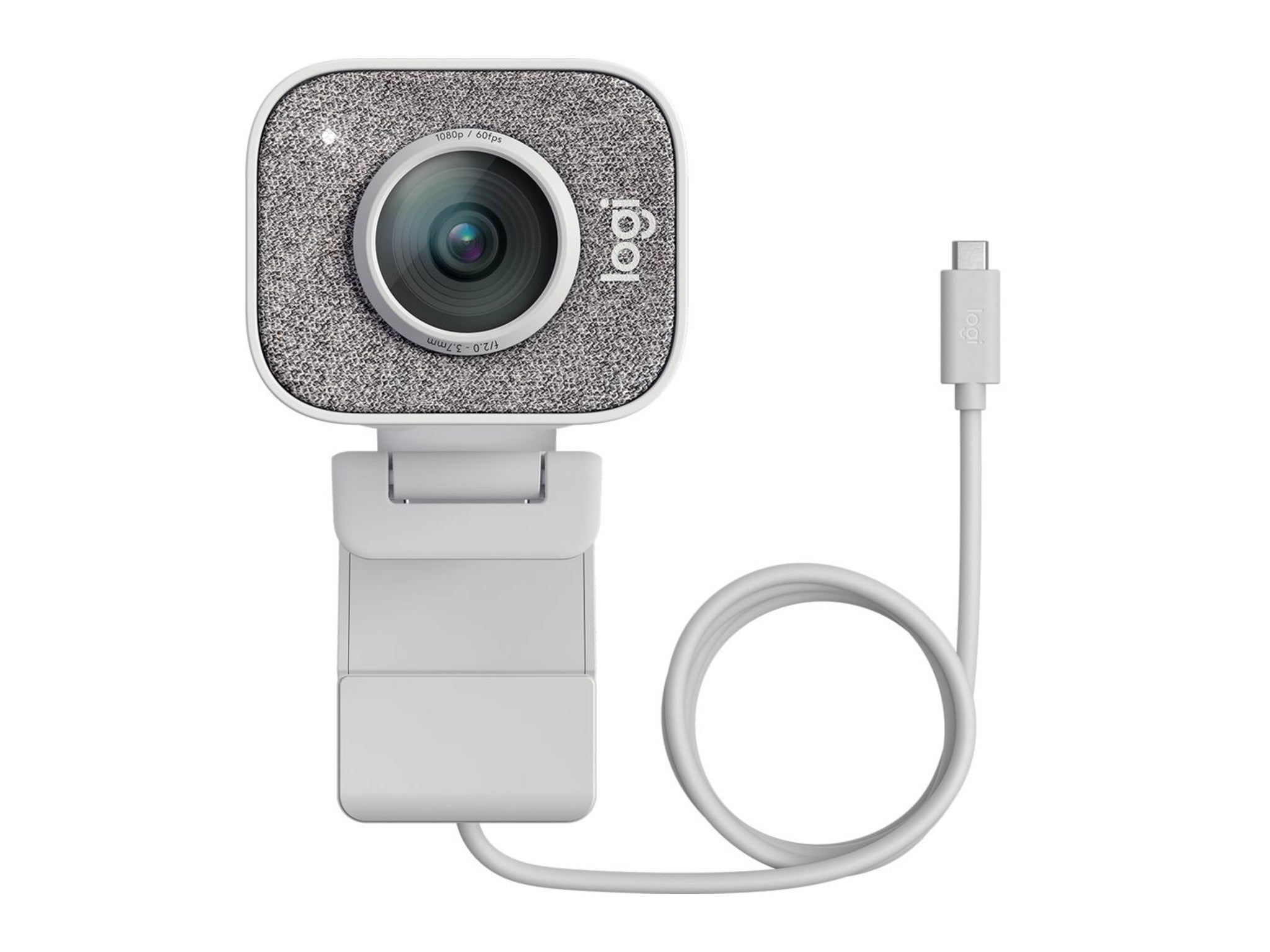
Best: Desktop camera
- Camera type: Full HD webcam
- Sensor type: N/A
- Resolution: Full 1080p HD
- Connectivity: N/A
- Size: 58mm x 85mm x 48mm
- Weight: 222g (with mount)
- Connection: USB Type-C
A webcam designed for streamers, Logitech’s StreamCam has a set of features that also appeal to vloggers and deskbound video creators. It can be quickly twisted 90 degrees to film in portrait, and when paired with Logitech’s companion software, offers face tracking and auto-exposure to keep you centred and focused in the shot. Plus, the webcam is optimised to play nicely with the two leading streaming interfaces, XSplit and OBS.
Limited to 1080p – but at a decent 60 frames per second – the StreamCam isn’t trying to offer the pin-sharp image quality of a dedicated vlogging camera. We found the picture grainy when used after sunset and without proper lighting, but with a ring light things improved hugely. We think the best-use case for the StreamCam is with recorded Zoom calls and video podcasts, where you need a no-fuss desktop camera that’s always on, but don’t want to look like you’re broadcasting from the bottom of a lake.
The verdict: Vlogging cameras
The Sony ZV-1 is the perfect marriage of features and portability, cramming the performance of a much larger mid-range camera into a device you can easily carry around with you all day. The limiting factor is that fixed lens, but if that suits your style of filming then there’s nothing to not recommend about this compact vlogging camera.
For vloggers looking for more versatility, or who prefer to film handheld, we recommend the excellent Fujifilm X-S10 for its top-tier image stabilisation.
Voucher codes
For the latest discounts and offers on tech buys, try the links below:
To upgrade your photography kit, check out our review of the best camera accessories, from tripods to storage equipment